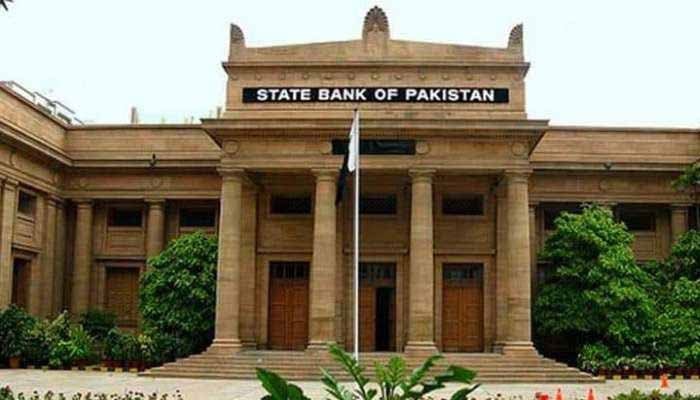SBP unveils monetary policy, hikes policy rate by 25 basis points to 10.25pc
Governor State Bank of Pakistan, Tariq Bajwa unveiled the policy after the meeting of Monetary Policy Committee (MPC), which he said after detailed deliberations had decided to raise the policy rate.
ISLAMABAD: State Bank of Pakistan (SBP) here Thursday unveiled monetary policy, increasing the benchmark interest rate by 25 basis points to 10.25 percent with effective from February 1st 2019.
Governor State Bank of Pakistan, Tariq Bajwa unveiled the policy after the meeting of Monetary Policy Committee (MPC), which he said after detailed deliberations had decided to raise the policy rate.
He was flanked by Deputy Governor, SBP, Jameel Ahmad, Member SBP Board, Hafiz Muhamamd Yousuf, Chief Economist SBP, Dr Saeed Ahmed, External Member, Dr Aliya Hashmi Khan and other senior officials of the bank.
Bajwa said the economic data released after the last MPC meeting in November 2018 confirmed that the stabilization measures implemented during the last twelve months were taking hold.
He said the key monthly indicators are showing visible signs of deceleration in domestic demand whereas the current account deficit was narrowing, albeit gradually.
This, along with an increase in financial inflows are contributing to reduced pressures on the country’s external accounts, he said adding that these developments were encouraging and have served to reduce some economic uncertainty.
Consolidation efforts needed to be continued as the challenges to Pakistan’s economy persist adding that though narrowing, the current account deficit remained high, fiscal deficit was elevated whereas the core inflation was persistently high.
Average headline Consumer Price Index (CPI) inflation stood at 6.0 percent for the first half of FY19, which was considerably higher than the 3.8 percent recorded during the same period last year.
Meanwhile, headline Year-on-year inflation has shown some moderation during the last two months, primarily due to a sharp fall in prices of perishable food items and a downward adjustment in prices of petroleum products.
The impact of these developments has also been captured in the recent IBA-SBP’s consumer confidence survey, which indicates some moderation in households’ inflation expectations.
The Governor said despite these positives, core inflation as measured by non-food-non-energy components of the CPI basket has reached 8.4 percent in December 2018. Going forward, the second round impacts of the exchange rate movements, upward adjustments in gas and electricity tariffs, and higher government borrowings from SBP were likely to be offset by the lagged impact of the increase in policy rates and the fall in international oil prices, on inflation.
-
Bitcoin crashes below $63K as regulatory pressure and market fears grow
-
Bitwise Crypto Industry innovators ETF: What investors should do in 2026?
-
Nintendo shares slide again as momentum fears grow
-
Gold, silver prices fallen sharply; What’s driving the drop?
-
Gold’s record climb: Experts question if its safety is ‘overstated’
-
Dubai unveils plans to construct street built with real gold
-
Netflix slams Paramount’s bid: 'Doesn't pass sniff test’ as Warner battle escalates
-
Ubisoft: Shares plunge amid restructuring plan and wave of games cancellations












